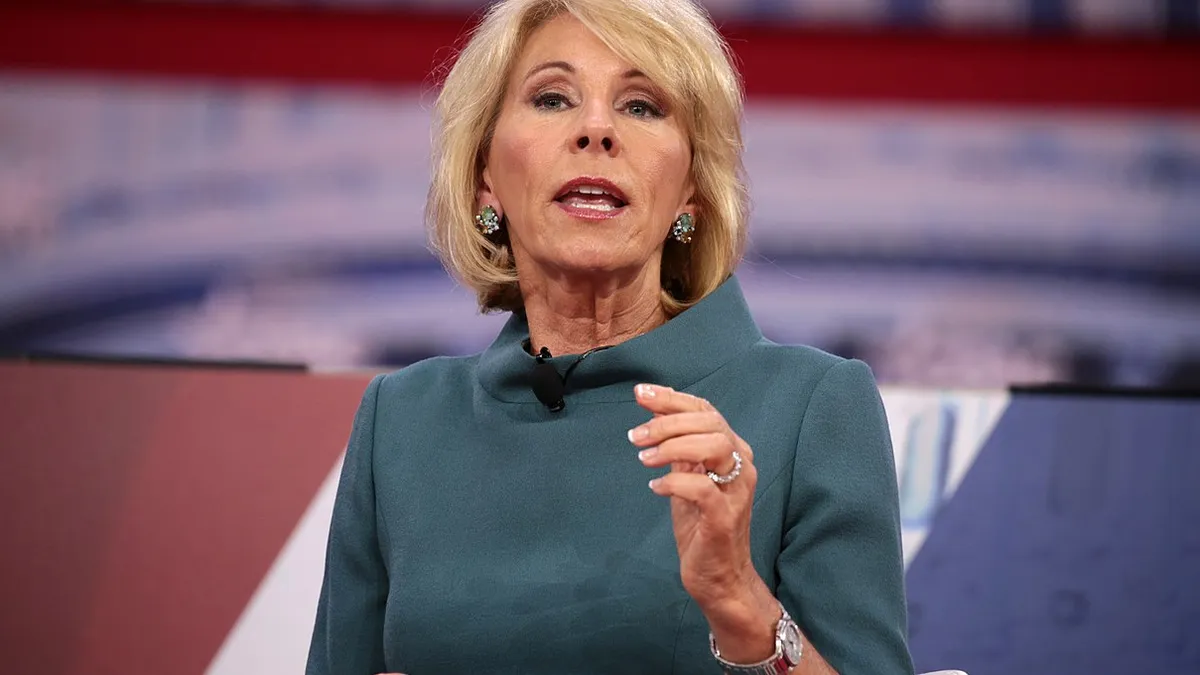Dive Brief:
- State higher ed regulators will have a voice in a committee of stakeholders negotiating new rules around college accreditation after the group voted Wednesday to allow them to have a representative, Bloomberg Government reported. But the Ed Department voted against giving state attorneys general a seat at the table.
- New to the committee is David Tandberg, vice president for policy research and strategic initiatives with the State Higher Education Executive Officers Association, to represent state regulators' interest.
- Bloomberg Government, citing Ed Department committee representative Annmarie Weisman, noted the department left out state attorneys general because it "didn't feel [they] had a strong role to play in the potential regulations compared with other groups overseeing colleges."
Dive Insight:
States have no small stake in the rulemaking session's outcome, which is scheduled to run until the end of March. Under the Ed Department's proposed regulatory overhaul, colleges would no longer need approval from all states where online students are enrolled or to disclose whether their programs meet that state's licensing requirements.
State higher ed regulators are tasked with ensuring the quality of education and the financial health of colleges within their borders. Attorneys general, meanwhile, have expertise in policing the behavior of colleges and have been cracking down on predatory marketing practices and other wrongdoing within the for-profit sector in recent years.
Most recently, nearly all state attorneys general were part of a settlement with Career Education Corp. that resolved a five-year inquiry over allegations the company misled students about costs of attending, job placement rates and other issues. Career Education admitted no wrongdoing but agreed to stop collecting on about half a billion dollars in debt — most of which it had already written off its books — and adopted new compliance measures meant to protect students.
A handful of state attorneys general moved to intervene in a lawsuit that the Accrediting Council for Independent Colleges and Schools (ACICS), a for-profit accreditor, filed against the Ed Department after the agency dropped its federal recognition in December 2016. The coalition backed the Ed Department's decision in the suit, effectively trying to block ACICS from accrediting schools.
A spokesperson for the Maryland attorney general's office told The Washington Post that ACICS' lax oversight of colleges left thousands of the state's students with "worthless degrees and exorbitant levels of debt." Education Secretary Betsy DeVos temporarily restored the accreditor's recognition last April before permanently reinstating it later that year.
Critics of the decision to exclude state attorneys general have raised concerns about a lack of clear consumer protection advocates on the committee, Bloomberg Government noted.
The negotiators do include many with stakes in online and alternative education, as well as students, accreditors and other institutions. They are tasked with coming to a consensus on a number of wide-ranging issues, including the definition of the credit hour, accreditor oversight and requirements for student-instructor interaction in online programs.











